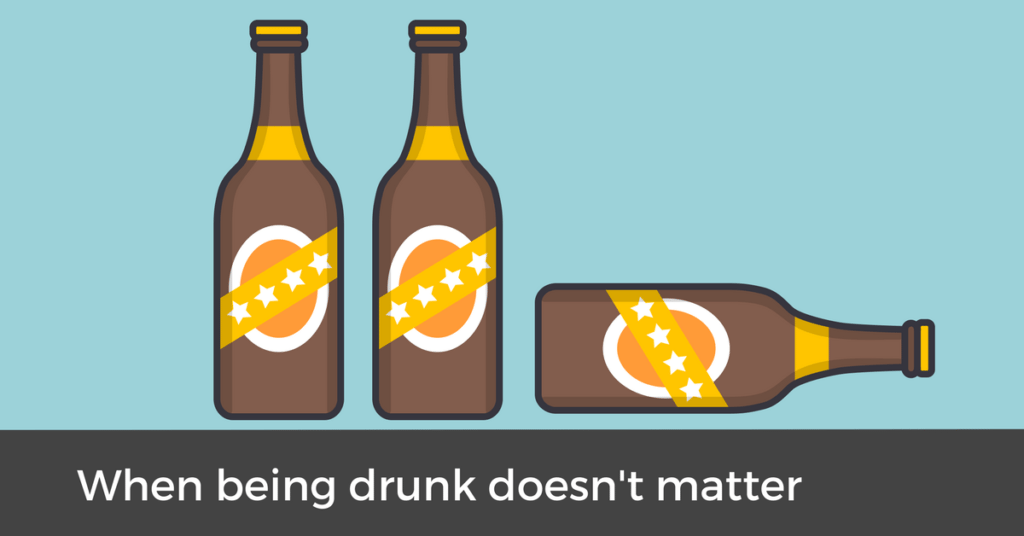The Facts
Terence Miles* was at the Robina Tavern on the Gold Coast for a birthday party with friends. Just before midnight, Terence was walking through the car park with his girlfriend Shari and two friends when a violent argument between Terence and Brock Williams erupted.
Brock was, at the time, driving through the tavern's car park. During the argument, Terence stood in front of the vehicle and refused to move. Brock responded by accelerating, driving over Terence’s legs, fracturing his left leg and right ankle.
These are the facts of The Court of Appeal decision of AAI Limited & Anor v Miles [2014].
The Initial Judgement
The trial judge believed that Brock breached his duty of care to Terence by choosing to accelerate rather than reverse out of Terence’s way. The key factor to this decision was that common sense should have told Brock that accelerating and striking a person would cause significant injury. Brock argued that Terence was drunk and contributed to his own injuries by failing to move out of the way. Expert medical evidence confirmed that Terence’s blood alcohol content (BAC) would have been about 0.04% at the time of the accident, below the legal limit to drive a car. The trial Judge, therefore, found that this was a low reading and that his “capacity to exercise proper care and control for his own safety” would not have been impaired. The Judge awarded Terence $750,000 at trial.
Discover how much your claim is worth using our FREE Claim Worth Calculator©

Get our FREE calculator and receive:
The Appeal
The matter was appealed by the insurer, Suncorp. They believed the Judge made the wrong finding and Terence should have been found partly at fault for his injuries.
In claims in Queensland, contributory negligence is presumed when involving a person who was intoxicated at the time of the accident. However, a person can refute this by proving their intoxication did not contribute to the accident.
Beyond the Jargon
Click the term to reveal it's definition
Contributory Negligence
On appeal the insurer alleged contributory negligence against the injured party because of his alleged intoxication and the position he placed himself when the accident occurred.
Under the relevant act there is no definition for intoxication and it is open to interpretation by the Judge. Although if someone has a BAC of 0.15% or higher there will be an increased chance that the judge would assume some contributory negligence to the plaintiff.
The Court of Appeal agreed with the trial Judge and upheld the original judgment. The judgment also made mention of the injured person’s honesty about the amount of alcohol he had drunk that night.
MCW Legal's Opinion
This case proves that the Courts have no hard and fast rules.
Determining contributory negligence when alcohol is involved must be considered on a case by case basis.
This decision reinforces how high the bar is set by the Courts to established contributory negligence in motor vehicle accidents. Anecdotal evidence just doesn’t cut it for these cases.
Here, we could assume that spitting, hurling abuse and picking a fight with someone in a car park might be grounds to assume that they are drunk, but the Courts disagree with this ‘common sense’ approach.
Instead, had someone been under the influence of alcohol, there need to be good evidence that the plaintiff was intoxicated and that the intoxication contributed to the plaintiff’s injuries. Such evidence could include:
- Ambulance records
- Hospital records
- Testimonies from bar staff on how many drinks were served and the state the injured person was in.
The Consequences
The findings in this case show just how difficult it is for insurers in proving negligence against claimants who were intoxicated.
It confirms that the Courts assess each matter on its own merits. Merely proving someone had alcohol in their system will not necessarily mean they contributed to the accident or their injuries. They must be able to prove that the person’s ability to exercise care and control for their own safety was impaired.
Written by Mitchell Herlihy | Associate
* The names and narrative have been altered but the facts of the case in regards to payments, liability and the Judge's findings on the evidence are reported as written in the judgement.


